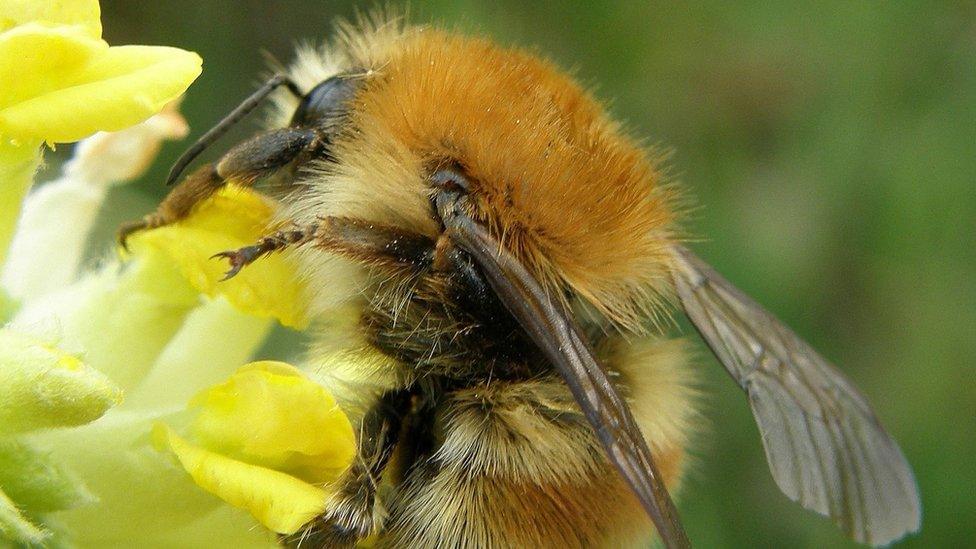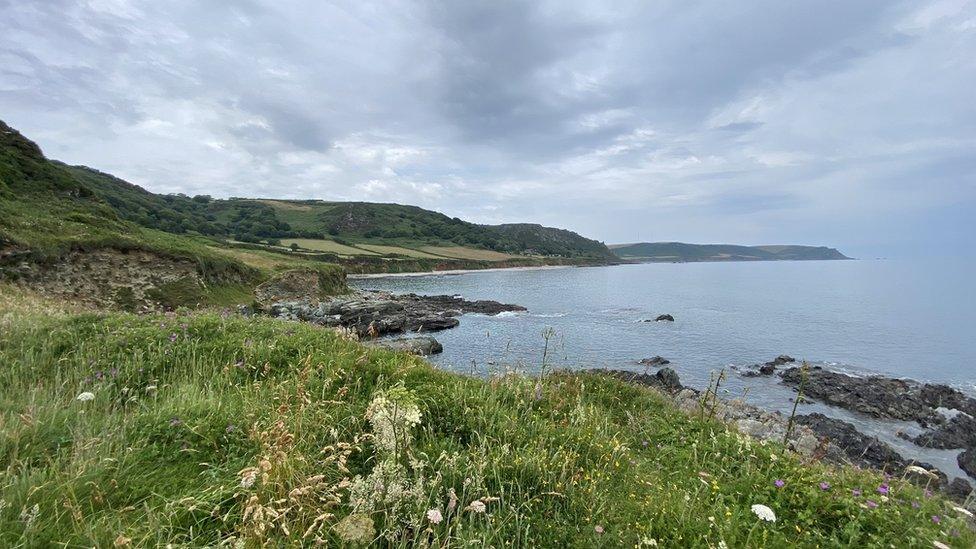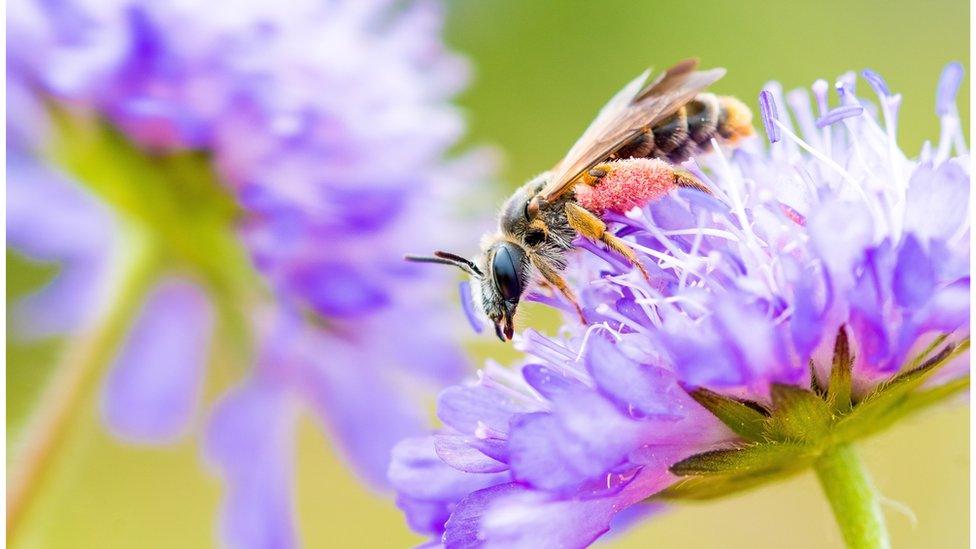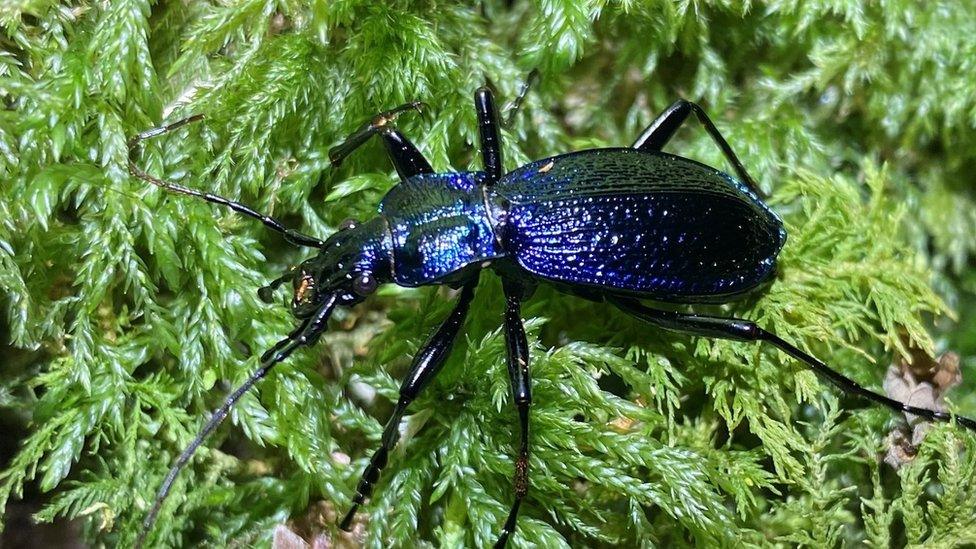Lost bumblebee rediscovered at Devon's Prawle Point
- Published

In 2022, the bee was rediscovered at Prawle Point for the first time since 1978
One of the UK's most threatened bumblebees has been rediscovered at a site in Devon.
The brown-banded carder bee population has declined due to habitat loss as it requires open flower-rich grasslands where wildflowers thrive, says charity Buglife.
In 2022, it was rediscovered at Prawle Point, in the South Hams, the first time since 1978.
Conservationists said it was a "fantastic and highly important find".
A project called Life on the Edge, which is a multi-partner scheme, aims to restore populations of some of the UK's rarest invertebrates and plants living along the south Devon coast between Berry Head and Wembury, including the last known colony of the six-banded nomad bee.
Hayley Herridge, Life on the Edge conservation officer, said: "This recent discovery as part of a wider rare invertebrate survey on the south Devon coast, is our headline news of the summer.
"We are delighted that a species lost, has been rediscovered at Prawle Point for the first time since 1978."
The species has also recently been rediscovered in the north of the county.

Prawle Point is along the south Devon coast
Rob Skinner, Life on The Edge project manager at the South Devon Area of Outstanding Natural Beauty, said: "This is a fantastic and highly important find.
"It shows that our Life on the Edge project is already delivering, boosting our knowledge of these special insects, we look forward to more finds as the project develops."
The project is currently in its development phase and has been funded by the National Lottery Heritage Fund, Devon Environment Foundation and Milkywire.
If successful in securing its second round of funding from the National Lottery Heritage Fund, the project will run from April 2024 until 2029.

Follow BBC News South West on Twitter, external, Facebook, external and Instagram, external. Send your story ideas to spotlight@bbc.co.uk, external.
- Published7 December 2022

- Published22 November 2022
